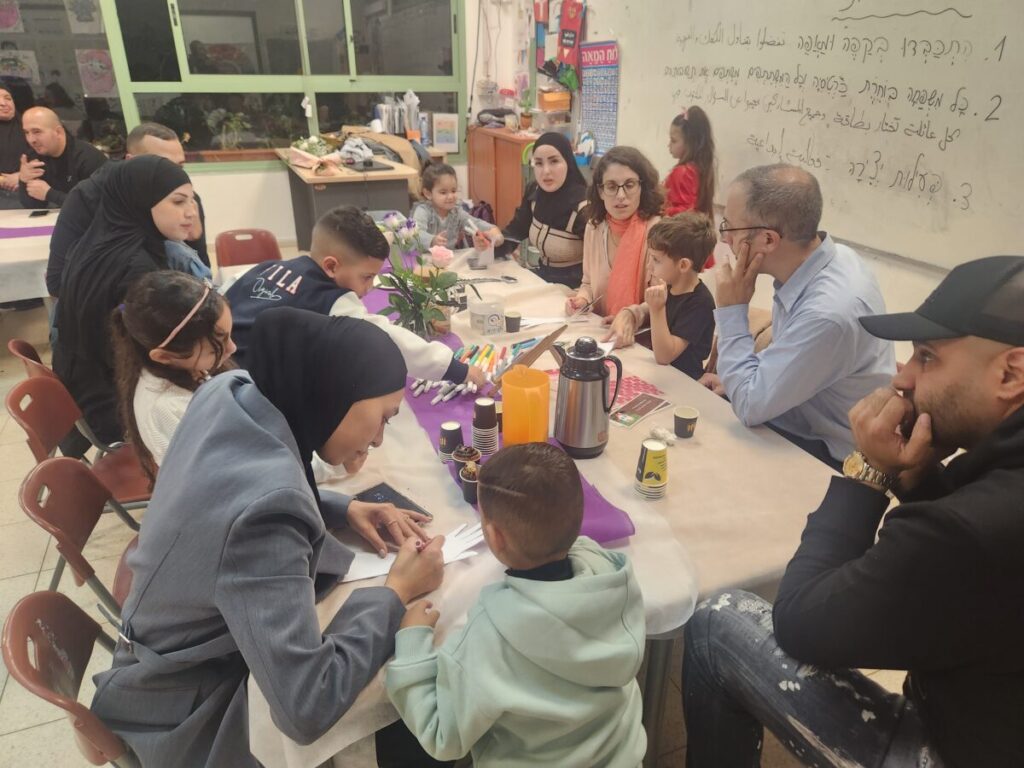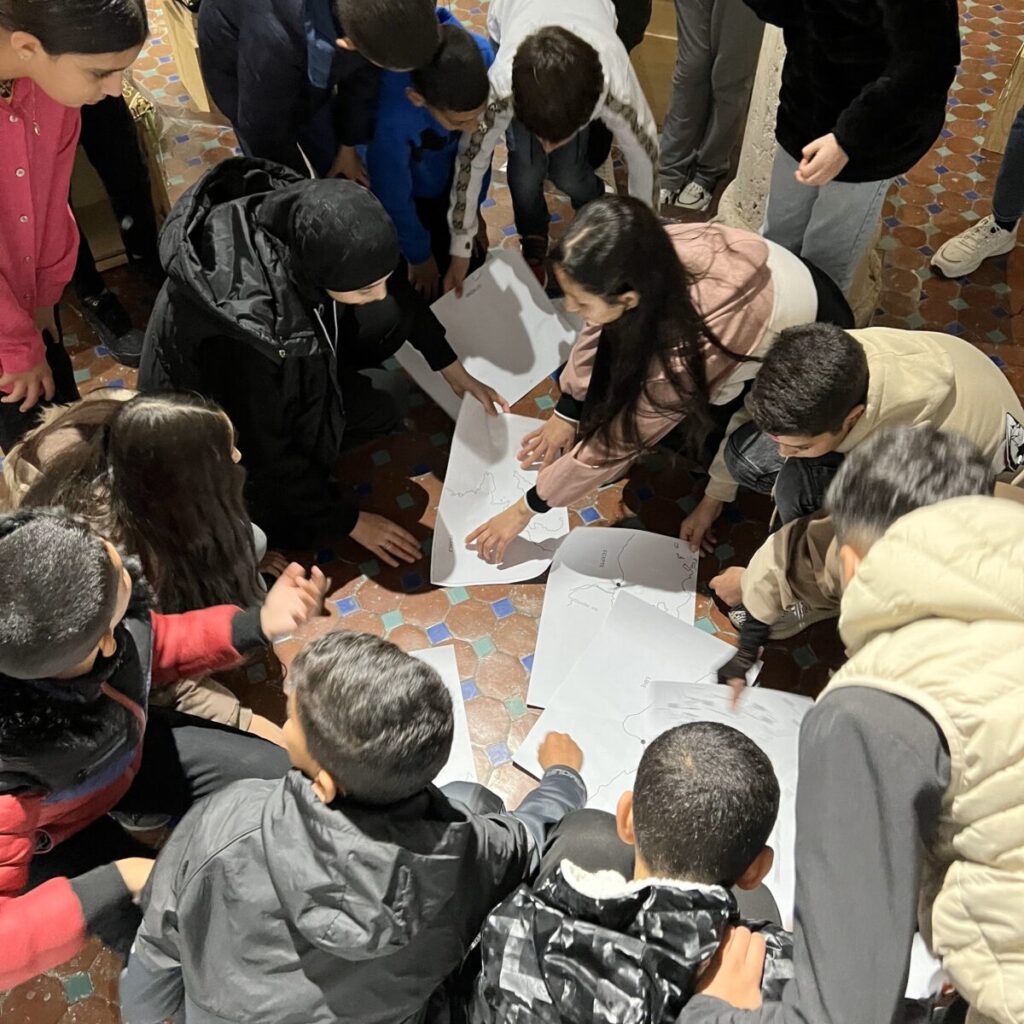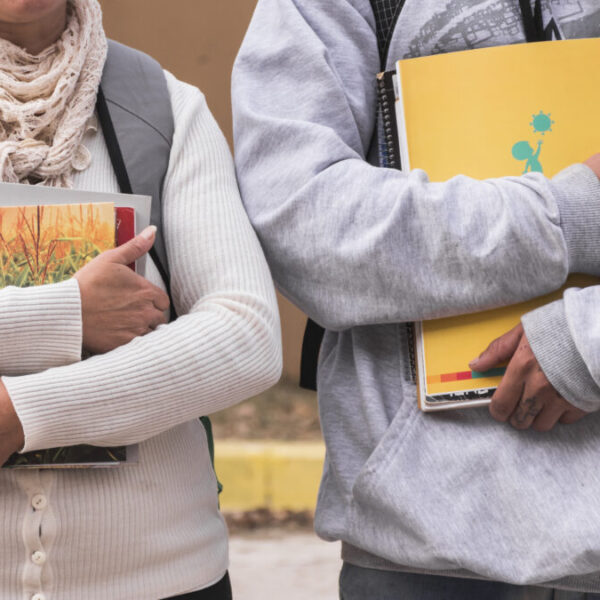From Italy to Israel and all the way to Albania, educational initiatives around the Mediterranean are building bridges between peoples. Whether it is about providing a future for refugees, fostering coexistence between Jews and Arabs, or integrating discriminated minorities, these projects show that school can be much more than a place of knowledge: a laboratory for peace.
This article, on education, is a summary of 4 articles published in 22-med. They can be found in the 11 languages used on the site:
https://www.22-med.com/une-ecole-nomade-pour-retisser-les-liens-en-mediterranee/ By Marie le Marois
https://www.22-med.com/a-neve-shalom-juifs-et-arabes-ont-choisi-de-vivre-ensemble-pour-construire-la-paix/ Caroline Haïat
https://www.22-med.com/comment-une-organisation-revolutionne-la-vie-des-roms-en-albanie/ Rajmonda Basha
https://www.22-med.com/les-couloirs-universitaires-les-refugies-ont-egalement-le-droit-a-leducation/ Jessica Perra
Educating to Exist: Refugees Finally at University
In a world where more than 100 million people are forcibly displaced, only 5% of refugees have access to higher education. A figure that reflects a glaring injustice, but programs like University Corridors for Refugees (Unicore) are trying to change that. Launched in 2019 under the auspices of the United Nations High Commissioner for Refugees (UNHCR), Unicore allows refugee students, graduates of undergraduate programs, to obtain a visa to pursue a Master's degree in Italy.
Today, 40 Italian universities participate in this program. At the University of Cagliari, Alessandra Carucci, vice-rector for internationalization, highlights its significance: “It is about rebuilding the future of students from Ethiopia, Nigeria, or Malawi. Thanks to a study visa, accommodation, a computer, psychological support, and access to training.”
The goal of the UNHCR? To raise the enrollment rate of refugees in higher education to 15%. With the DAFI scholarships – a global German initiative – progress is being made. In 2023, 9,000 students benefited from this support in 56 countries. And for the first time, 43% of them are women. A slow but real advancement.
Fighting Exclusion: The Roma of Albania Speak Out
Another educational battle is being fought in Albania, this time on behalf of the Roma community, which has long been marginalized from the school system and the job market. To break this cycle of poverty and discrimination, the NGO Roma Versitas Albania is focusing on university education. And it is working: from 5 Roma students in 2014, they grew to 127 in the first year of the program, and then to 257 supported across the country.
“This success relies on the scholarships, academic and administrative support we provide,” explains Emiliano Aliu, executive director of the organization. The support does not stop at graduation: Roma Versitas also works on the professional integration of graduates and their presence in decision-making spaces.
A concrete example: Franko Veliu, 24, a victim of school discrimination, is now the executive director of Amaro-Drom, a historic Roma organization. “What pushed me not to give up was my passion for the usefulness of social services and advocating for the Roma cause,” he shares. His journey embodies a possible shift: that of an educated, engaged, and visible Roma generation. A model still fragile, but capable of creating a snowball effect in communities.

An Oasis of Peace at Neve Shalom
Halfway between Tel Aviv and Jerusalem, a village has embodied a utopia turned reality for fifty years: Neve Shalom / Wahat as-Salam, literally “Oasis of Peace.” Here, 300 Jewish and Arab residents have chosen to coexist voluntarily. A way of life radically opposed to that of mixed cities like Haifa or Acre, where coexistence is imposed. In Neve Shalom, people live together by choice, not by necessity.
This choice is reflected as early as preschool, where children learn Hebrew and Arabic side by side. Education is bilingual, multicultural, and inclusive. “They learn about each other’s holidays, traditions, and stories, which later allows them to navigate easily between the two worlds,” explains Nir Sharon, director of the schools and a resident of the village.
However, the ideal of Neve Shalom has been put to the test after the attacks on October 7, 2023. While tensions have seeped into daily life, the residents have bet on dialogue. “After such a shock, everyone wants to take refuge with their own. Here, we don’t have that luxury. We must confront the other, their fears, their expectations,” summarizes Nir. In a fractured country, this village remains a beacon.
The Beit Project: A Nomadic School Between Shores
Another latitude, another initiative: The Beit Project. This educational project, born in Barcelona in 2010, has been charting an urban and intercultural odyssey for over ten years to connect young Europeans and Mediterraneans around a common heritage. Its method? A field pedagogy rooted in the city, close to its scars. Through commemorative plaques, remnants, and forgotten stories, middle school students revisit their collective history and question today’s discriminations.
After a sailing edition in 2022-2023, The Beit Project has anchored this year on land. Three symbolic cities – Marseille, Tangier, Bastia – hosted the “Nomadic School of Living Together in the Mediterranean.” Accompanied by young Franco-Moroccan volunteers, 400 middle school students conducted a historical investigation into their respective cities. In Bastia, they gave voice to Genoese coats of arms or plaques honoring child victims of fascism. In Marseille, they recounted Neapolitan migrations and the memory of the Old Port round-up. In Tangier, they highlighted the figure of Fatima Al Fihria, founder of the oldest university still in operation in the world.
At the end of the project, at the Museum of History in Marseille, the students shared their work. Some said they learned “a lot of things” about their city, while others said the project changed their perspective. One student even confided: “I hope this world will be better in a few years.”
When Cities Become Living Textbooks
At the heart of all these initiatives, a common thread, a simple conviction: to hope for a fairer society, we must start with education. Offering chances to the excluded. Whether it is an Israeli-Palestinian village, an Italian university, or a traveling workshop between Bastia and Tangier, all these projects have one thing in common: they reinvent school as a political, social, and profoundly human space.
At a time when conflicts, migrations, and discriminations deepen fractures, these actions remind us that peace is not decreed – it is learned. Through encounter. Through knowledge of the other. And through bold educational institutions, open to the world and its pains.

